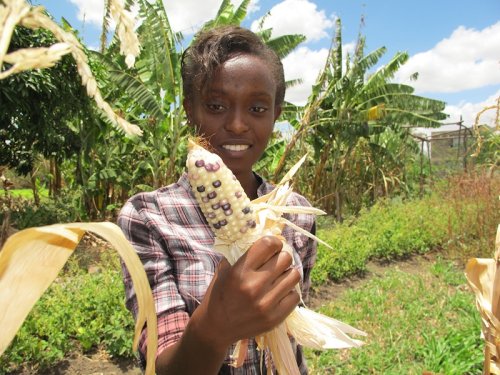Press release of the Swiss Right to Seeds Coalition
Switzerland, Liechtenstein and Norway are undermining farmers’ rights to seeds in the countries of the global South
No more EFTA power play against the South!
Bern, 9 July 2020
250 organisations from 60 countries are calling on Switzerland, Norway and Liechtenstein in an open letter to stop imposing strict plant variety protection laws on the countries of the global South; laws with which they themselves do not comply. This demand by the EFTA countries for strict plant variety protection – a kind of patent protection on seeds – drastically restricts the free use of seeds, to the detriment of farmers in the global South. The right to food, food sovereignty and agrobiological diversity are all under threat.
250 organisations from around the world have approached the governments of Switzerland, Liechtenstein and Norway out of concern for farmers’ seed systems, which are a guarantor of agrobiological diversity and an essential resource for the breeding of new crops. They are requesting that the requirement for UPOV 91-compatible plant variety protection legislation be removed from the negotiation mandates for future free-trade agreements.
For more than 20 years, the countries of the European Free Trade Association EFTA (Iceland, Liechtenstein, Norway, Switzerland) have been pressurising the countries of the global South in their free-trade agreements to introduce plant variety protection laws in accordance with the international UPOV 91 [1] Convention. This disproportionately restricts the rights of farmers to save, use, exchange and sell farm-saved seed and other propagating material. This is despite the fact that Switzerland, Norway and Liechtenstein [2] do not implement these standards in their own countries.
This ‘double standard’ is all the more shocking because in the countries of the South, the farmer managed seed systems, which are shaken to their foundations by UPOV standards, are of much more central importance for food and income security than in Europe. The imposition of these standards on the countries of the global South, having been negotiated without their participation, is a neo-colonial dictate. Countries should be able to make their own decisions on seed-related laws and policies that suit their agricultural systems and the needs of their populations.
EFTA is currently negotiating an agreement with Malaysia. In February 2020, intellectual property rights that included plant variety protection à la UPOV 91 were part of the agenda. In the case of Malaysia in particular, it is hard to understand why the EFTA countries should insist on UPOV 91. The country already has a plant variety protection law which, within a limited framework, also respects farmers’ rights to seeds.
Renouncing UPOV standards from the free trade agreements would contribute in a significant way to the achievement of the United Nations Sustainable Development Goals, in particular Goal 2 (Zero Hunger) and Goal 15, which seeks to halt the loss of biodiversity.
For further information:
• Judith Reusser, Seeds Development Policy Officer, SWISSAID; j.reusser@swissaid.ch
• François Meienberg, Coordinator, APBREBES; contact@apbrebes.org
• Thomas Braunschweig, Trade Policy, Public Eye, thomas.braunschweig@publiceye.ch
